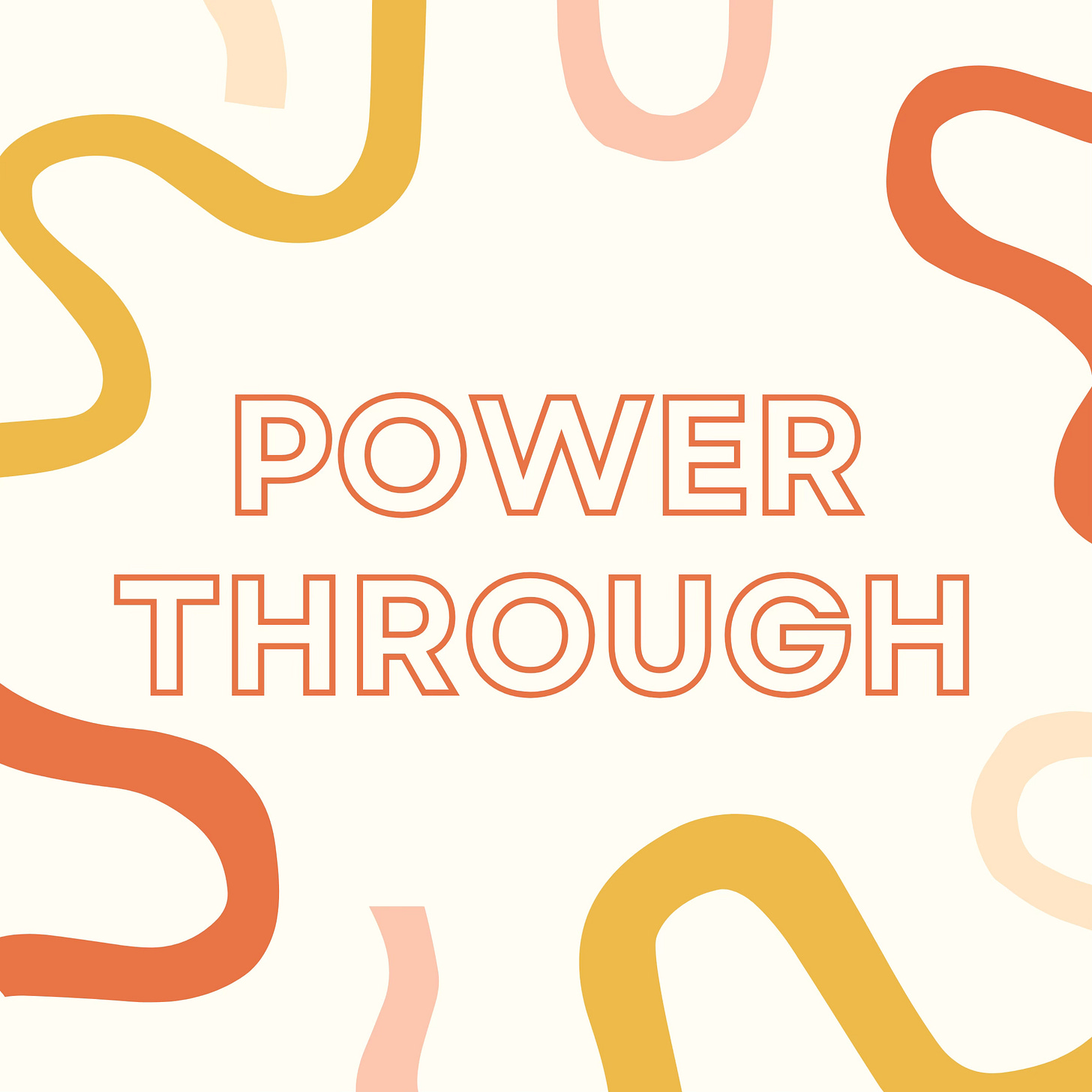Power Through
Facing your ideas means facing yourself. Sometimes, you'll want to give up. But what happens when you power through?
“You could accept the pure simple truth of writing: it is work. And like all work, it sucks. The level of difficulty doesn’t mean that work isn’t worth it. It just means that you have to accept that, like all work, there will be good days and bad, and learning how to power through the bad is just as important as reveling in the good. So yes, it will suck. It will be hard. You will want to quit." —Justina Ireland
When I participated in NaNoWriMo (National Novel Writing Month) last November, the quote above spurred me into action.
And Justina Ireland was right. Halfway through my goal of 50,000 words over 30 days, my momentum slowed. I wanted to quit.
Before the challenge, I’d never attempted to write that many words. Essays, short stories, or even screenplays? Sure! But a full-length novel? No way.
In late October 2023, a few of my preconceived notions dissipated, and I thought: Why not try? It was better than the alternative. In a week, I brainstormed the idea and dove right in. Very unlike me.
When it comes to creating, I live for preparation. I could spend weeks or even months in that stage. But if I get too comfortable, distractions come—usually in the form of new ideas or worries.
So how did I get through the novel writing challenge? Day by day. And caffeine was a big help.
Trust me, there were mornings when I didn’t want to wake up at six, so I didn’t. Many times, it was much later, and that’s okay. I kept showing up to meet that word count, even if it meant I wrote after work into the night.
Did life get in the way? Yes, but I was determined to power through. And on November 30, 2023, I made it. Exhausted—and sweaty with anticipation—I limped across the finish line, just surpassing 50,000 words. That was a very high high.
A few days later, I struggled with the next question: Now what? I earned the coveted NaNoWriMo badge, but the work was far from over. Instead of trying to predict the future, I forced myself to breathe and stay present.
Like painting or dancing, writing in and of itself is a journey. Art takes time.
I usually need a deadline to see a vision through. While a ticking clock can be helpful, it can also be a nuisance during initial creative stages, especially incubation.
When ideas are in their infancy, I find it’s important not to be judgmental or rigid. Ideas need room to shift and change.
Inspiration may strike like a lightning bolt, but the process can also be painstakingly slow. It reminds me of a paleontologist ever-so-carefully brushing dirt away from dinosaur fossils or a sculptor chiseling to free the subject within a marble block.
“The sculpture is already complete within the marble block before I start my work. It is already there, I just have to chisel away the superfluous material.” —Michelangelo Buonarroti
You may be sitting in front of a blank screen or piece of paper, your very own tabula rasa (Latin: “scraped tablet”—i.e., “clean slate”). It seems like nothing will ever materialize, but I promise you it will. That small voice within urged you to start somewhere…anywhere.
As Michelangelo implied, the idea is already within you. And there is no limit to what you can achieve.
We began with Justina Ireland’s quote, and it doesn’t only apply to writers. Her truths benefit every kind of creative. Work can be grueling. There will be peaks and valleys. But if you stick around long enough, the grand view will be well worth the climb. So let’s keep powering through!




